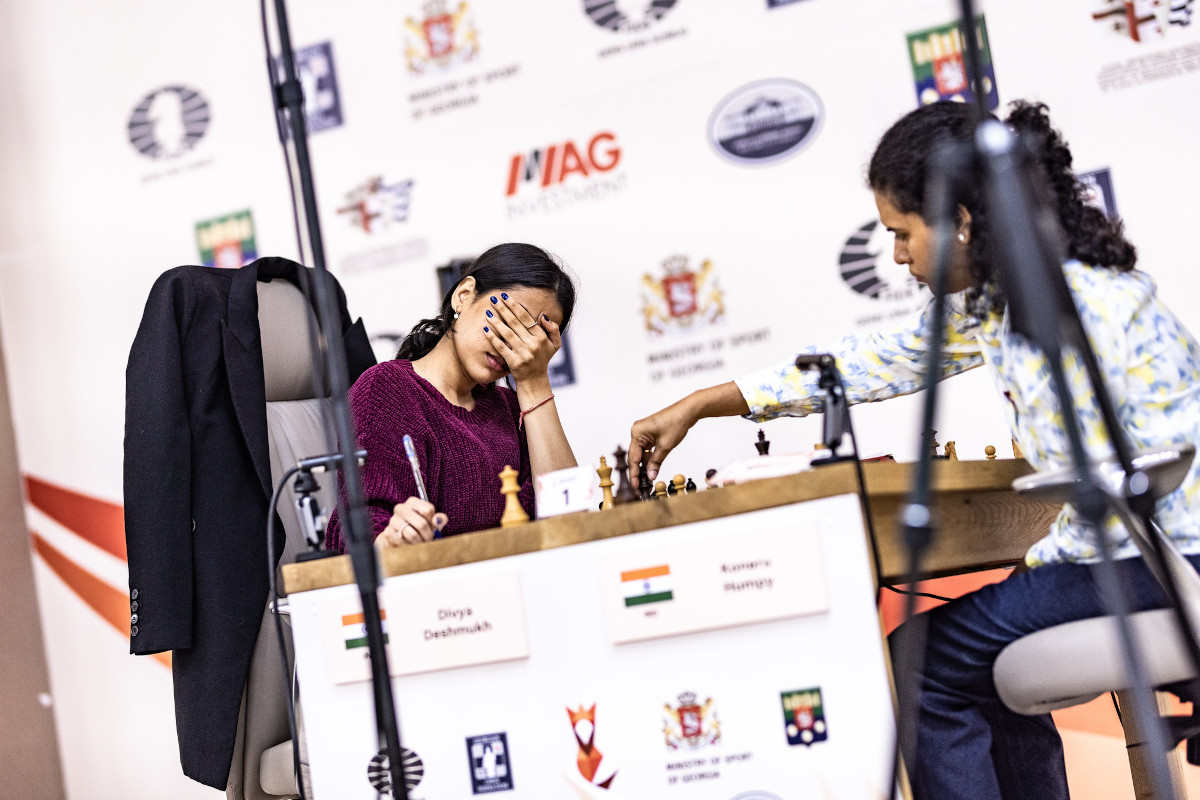The prestigious 2025 FIDE Women`s Chess World Cup final has delivered a dramatic twist, pushing the contest between India`s chess stalwarts, Koneru Humpy and Divya Deshmukh, into a high-stakes tiebreaker. After two grueling classical games concluded in draws, the championship now hangs by a thread, set to be decided in a series of rapid and blitz encounters that promise to be as thrilling as they are tense.
A Strategic Stalemate: Games One and Two Unpacked
The classical portion of the final proved to be a masterclass in cautious aggression and strategic resilience. The first game, played on Saturday, saw Divya Deshmukh reportedly feeling a tinge of regret despite securing a draw. Her post-game reflection painted a picture of missed opportunities, suggesting a feeling akin to loss even when the score remained level. It`s a testament to the psychological warfare inherent in top-tier chess, where even a half-point can feel insufficient if the winning chances were perceived to be abundant.
“I was quite disappointed with the first game obviously because I saw everything and I just always ended up making the wrong choice, and it was quite a pity. The first game didn`t go my way and even though it was a draw it kind of felt like a loss. So, I was just trying to recover and today was considerably easier,” Divya commented, highlighting the mental recovery required between rounds.
Sunday`s Game 2, however, saw a more composed Divya. Facing Koneru Humpy`s Queen pawn opening, she meticulously navigated the complexities. Humpy, known for her deep strategic understanding, gained an optical advantage early with her pair of bishops. Yet, Deshmukh`s astute placement of her knights neutralized this potential threat, proving that sometimes, the nimble cavalry can indeed outmaneuver the long-range artillery. The game progressed through exchanges, eventually leading to a queen-and-minor-piece endgame. Humpy attempted to force matters with a pawn sacrifice, but the simplification that followed, coupled with Divya`s precise defense, led to a repeat position and a draw after 34 moves. Both players demonstrated exceptional positional understanding, unwilling to yield an inch in this ultimate battle.
The Gauntlet of the Tiebreakers: Speed Chess Decides All
With the classical games producing no decisive outcome, the players now face the unforgiving crucible of tiebreakers, where time pressure amplifies every decision and a single misstep can be fatal. The format is designed to progressively increase the tempo, pushing the grandmasters to their limits:
- First Round: Two games of 15 minutes per side, with a 10-second increment after every move.
- Second Round (if still tied): Another set of two games, this time with 10 minutes per side and a 10-second increment.
- Third Round (if still tied): Two more games, shrinking to 5 minutes per side with a 3-second increment.
- Final Stand (if still tied): A sudden-death final set of two games, with 3 minutes per side and a 2-second increment per move.
This escalating time control system transforms the intellectual marathon of classical chess into a thrilling sprint, a true test of nerve and intuition. It`s a format that can be brutal, where months of preparation can be undone in a matter of seconds. The slight irony is not lost on observers: after hours of contemplative, deeply analytical play, the ultimate victor is often decided by who can think fastest under the most immense pressure.
A Clash of Generations and Legacies
This final is particularly significant for Indian chess. Koneru Humpy, a seasoned veteran and former Women`s World Rapid Champion, represents consistency and profound experience on the global stage. Divya Deshmukh, on the other hand, is a rising star, exemplifying the vibrant new generation of Indian chess talent. Their clash in the World Cup final is not just a battle for a title but also a symbolic passing of the torch, or perhaps a fierce contest to hold onto it.
As the chess world watches with bated breath, the tiebreakers promise to deliver a fitting, albeit rapid-fire, conclusion to an already captivating championship. The queen of the chessboard will soon be crowned, but only after navigating the exhilarating and nerve-wracking rapids of time-constrained combat.

